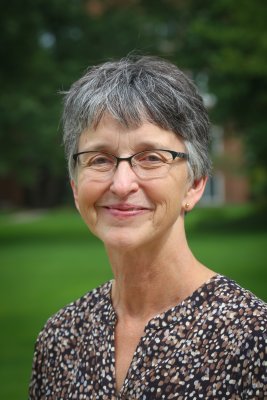Shetler authors book on women’s generational ‘network of knowledge’ in Tanzania
By Nick Yutzy ’21
Related: “Civic Virtue and Women’s Political Activism” on University of Wisconsin Press Blog

For years, Jan Bender Shetler, professor of history and director of international education at GC, has crossed paths between academics and global citizenship. She and her husband, Peter Shetler, spent 11 years from 1980 to 1991 working on community development with Mennonite Central Committee in Ethiopia, the Congo and Tanzania.
Not long after returning to the U.S., Shetler found herself back in Tanzania, this time as part of a history Ph.D. program with the University of Florida. In her dissertation, she took on the task of researching the oral tradition of the Northern Tanzania area called the Mara Region.
To her surprise, when she asked those around her who she should interview, the male elders of the various ethnic groups were on the top of the list. “They represented their ethnic group and they told the history of their people,” Shetler said.
These interviews turned into Shetler’s first publication in the region, titled, “Imagining Serengeti: A History of Landscape Memory in Tanzania from Earliest Times to the Present,” (Ohio University Press, 2007).
Driven by her initial research, Shetler decided to revisit the region to conduct more research. This time, she was determined to understand the Mara Region from the women’s point of view.
“People always said, ‘women don’t know history, men know history,’” Shetler said. “That always makes me push back a little bit.”
In the fall of 2010, Shetler spent three months interviewing 98 women of the Mara Region in Tanzania in an attempt to uncover the distinct gendered memory of historical networks of the region.
These stories were compiled into her second published book on Tanzania, Claiming Civic Virtue: Gender Network Memory in the Mara Region, Tanzania (University of Wisconsin Press, July 2019). Shetler looks to share the stories that women have specifically been charged with remembering, differently from men.
“The book is trying to construct a chronological history of the whole Mara Region as it is networked together through the stories of these women,” Shetler said.
Through her interviews, Shetler uncovered a whole set of regional networks created and passed on from generation to generation between women.
Young girls in the region routinely slept in their grandmothers house who lived close by. At night, the grandmothers told stories of all sorts, some folk tales, others about the historical connections throughout the village and region. This tradition established a strong understanding among women, of this critical memory of connections that helped the community as well as themselves in times of hardship.
Rather than a male historical memory that provides histories of separate ethnic groups, the women provided a sense of interactions over the whole region.
“They were claiming their own civic virtue in contributing memory that was critical to community survival,” Shetler said.
Shetler understood this and the various benefits these stories have on the entire community.
“The goal of my book was to show that women were public intellectuals, had a contribution to make and claimed their right to do so in the stories they told about the past,” she said.




